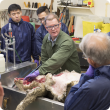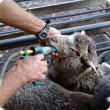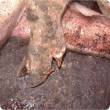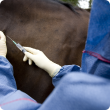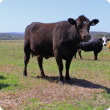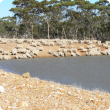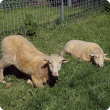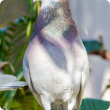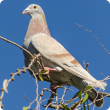Services
Search in Services
Filter services by topic
- (-) Remove Biosecurity & quarantine filter Biosecurity & quarantine
- (-) Remove Livestock & animals filter Livestock & animals
- (-) Remove Pests, weeds & diseases filter Pests, weeds & diseases
- Biosecurity (77) Apply Biosecurity filter
- Livestock biosecurity (75) Apply Livestock biosecurity filter
- Diseases (73) Apply Diseases filter
- Livestock health & diseases (73) Apply Livestock health & diseases filter
- Livestock disease surveillance (69) Apply Livestock disease surveillance filter
- Livestock species (58) Apply Livestock species filter
- Livestock management (30) Apply Livestock management filter
- Sheep (26) Apply Sheep filter
- Emergency animal disease preparedness (21) Apply Emergency animal disease preparedness filter
- Beef cattle (20) Apply Beef cattle filter
- Dairy cattle (16) Apply Dairy cattle filter
- Management & reproduction (11) Apply Management & reproduction filter
- Poultry & birds (10) Apply Poultry & birds filter
- Goats (8) Apply Goats filter
- Control methods (8) Apply Control methods filter
- Pigs (7) Apply Pigs filter
- Chemicals (7) Apply Chemicals filter
- Horses (6) Apply Horses filter
- Feeding & nutrition (6) Apply Feeding & nutrition filter
- Livestock movement & identification (5) Apply Livestock movement & identification filter
- Wildlife biosecurity (4) Apply Wildlife biosecurity filter
- Veterinary chemicals (4) Apply Veterinary chemicals filter
- Residues in livestock (4) Apply Residues in livestock filter
- Preventing residues (4) Apply Preventing residues filter
- Food, export & investment (3) Apply Food, export & investment filter
- Climate, land & water (3) Apply Climate, land & water filter
- Crops (3) Apply Crops filter
- Stockfeed (2) Apply Stockfeed filter
- Emergency response (2) Apply Emergency response filter
- Livestock research & development (1) Apply Livestock research & development filter
- Quarantine (1) Apply Quarantine filter
- Water (1) Apply Water filter
- Water management (1) Apply Water management filter
- Irrigated crops (1) Apply Irrigated crops filter
- Importing to Western Australia (1) Apply Importing to Western Australia filter
- Export services (1) Apply Export services filter
- Grains (1) Apply Grains filter
- Horticulture (1) Apply Horticulture filter
- Importing animals (1) Apply Importing animals filter
- Investment attraction (1) Apply Investment attraction filter

